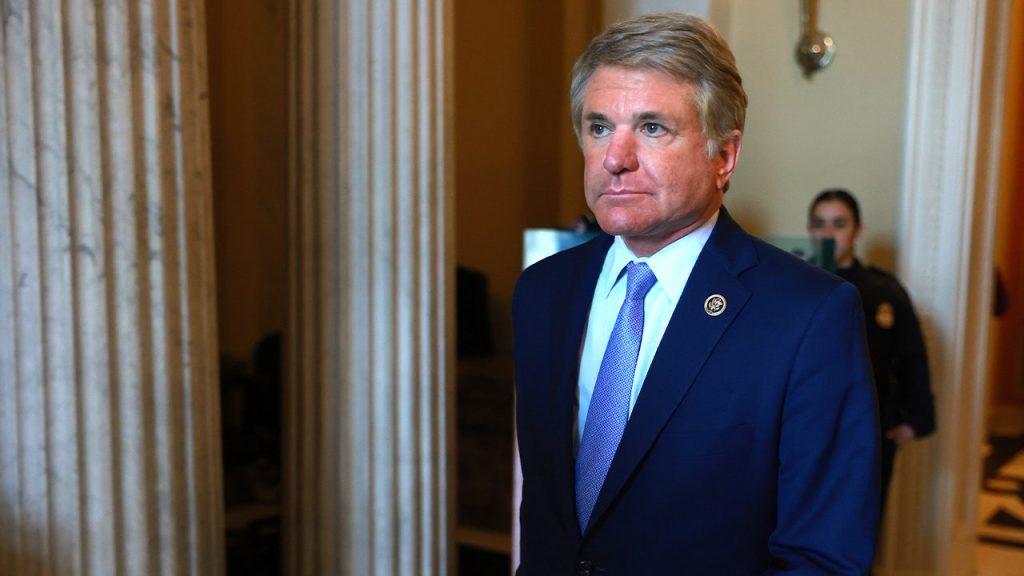Congressman Michael McCaul Reflects on His Political Legacy as He Prepares to Exit Capitol Hill
Choosing to “Go Out on Top”
After more than two decades representing Texas’ 10th congressional district, Representative Michael McCaul has decided it’s time to close his chapter in Congress. With characteristic candor, the 64-year-old Republican shared his perspective on how political careers typically end: “You can die, you can lose, you can get indicted, or you can go out on top.” McCaul has firmly chosen that fourth option, deciding not to run in the November midterms. This decision comes after he’s served the maximum allowed six terms as the top Republican on both the Foreign Affairs Committee and the Homeland Security Committee, reaching the pinnacle of his congressional influence. Rather than clinging to power until forced out, McCaul is embracing the opportunity to leave on his own terms while still at the height of his effectiveness.
From Capitol Hill to Future Endeavors
As he prepares for life after Congress at the end of 2026, McCaul isn’t planning to retreat from public service entirely. He’s expressed interest to the Trump administration about potentially serving as the U.S. Ambassador to Australia. “Being ambassador to Australia would be a very good fit for me,” McCaul explained, highlighting his extensive work on the AUKUS security agreement between the United States, United Kingdom, and Australia. As co-chair of the Friends of Australia Caucus and a leading champion of AUKUS in Congress, he believes his experience positions him well for the role. “I know all the players. I know their issues,” he stated confidently. Beyond a potential ambassadorship, McCaul mentioned receiving several offers in the national security and intelligence spaces, as well as opportunities with think tanks that would allow him to remain a public voice on issues he cares about deeply. This transition represents not an end but a transformation of his public service.
A Legacy of National Security Leadership
Reflecting on his congressional tenure, McCaul describes it as “an honor of a lifetime” marked by significant achievements in national security. As Chairman of Homeland Security, he led during the rise of the ISIS caliphate, established the cybersecurity agency, and implemented traveler-friendly programs like TSA PreCheck and Global Entry. His chairmanship of the Foreign Affairs Committee coincided with momentous global events, including the fall of Afghanistan and Russia’s invasion of Ukraine. McCaul takes particular pride in his work on the emergency wartime supplemental bill for Ukraine, which he believes was crucial in preventing a complete Russian occupation. “Had we not passed that, I think Russia would be occupying Ukraine today, and they’d be in Moldova and Georgia and maybe threatening the Baltic States and Poland,” he explained. These accomplishments reflect McCaul’s consistent focus on strengthening America’s security posture while engaging constructively with global allies.
Standing Against Isolationism
As a leading voice on foreign policy within the Republican Party, McCaul has witnessed and resisted the growing isolationist streak among some of his colleagues. He’s unequivocal about the dangers of this mentality: “It didn’t work in 1939, and there are a lot of parallels to 1939 today.” While supporting calls for greater burden-sharing among allies and acknowledging the importance of NATO members stepping up their commitments, McCaul draws a clear line against retreating from global leadership. “The America First I agree with, but it’s not at the expense of abdicating our responsibility to lead the world,” he stated firmly. This position places McCaul among the traditional foreign policy hawks in the Republican Party who believe American engagement on the world stage is essential for both national security and global stability. His consistent advocacy for international cooperation, particularly in confronting threats from adversaries like Russia and China, has been a hallmark of his congressional career.
Finding Peace with His Decision
When asked about potential regrets from his time in Congress, McCaul expressed contentment with his path, despite having once considered a Senate run. “I wouldn’t trade what I have done for anything,” he reflected, conveying a sense of fulfillment with his congressional achievements. His peace with leaving stems from the knowledge that he’s accomplished what he set out to do, having chaired two major committees and made tangible impacts on national security policy. McCaul’s satisfaction with his career choice reflects a mature understanding of political life’s limitations and opportunities. His parting observation—”I’ll miss the clowns, but I won’t miss the circus”—captures both his affection for the individuals he’s worked with and his readiness to step away from the often chaotic environment of Capitol Hill. This blend of appreciation and readiness for change characterizes McCaul’s approach to this significant transition.
A Model for Political Transitions
Michael McCaul’s departure from Congress offers a template for how elected officials might approach the end of their political careers with dignity and purpose. Rather than waiting until forced out by electoral defeat, scandal, or health issues, he’s chosen to leave while still effective and respected. This decision allows for a thoughtful transition that preserves his legacy while opening doors to new forms of public service. As political polarization intensifies and congressional effectiveness is often questioned, McCaul’s exit strategy demonstrates a refreshing self-awareness about when it’s time to pass the torch. His continued interest in national security matters ensures that his expertise won’t be lost to public service, just channeled through different avenues. For a political system that often struggles with orderly transitions of power and graceful exits, McCaul’s approach represents a positive example of how to conclude one chapter of public service while preparing to begin another.













